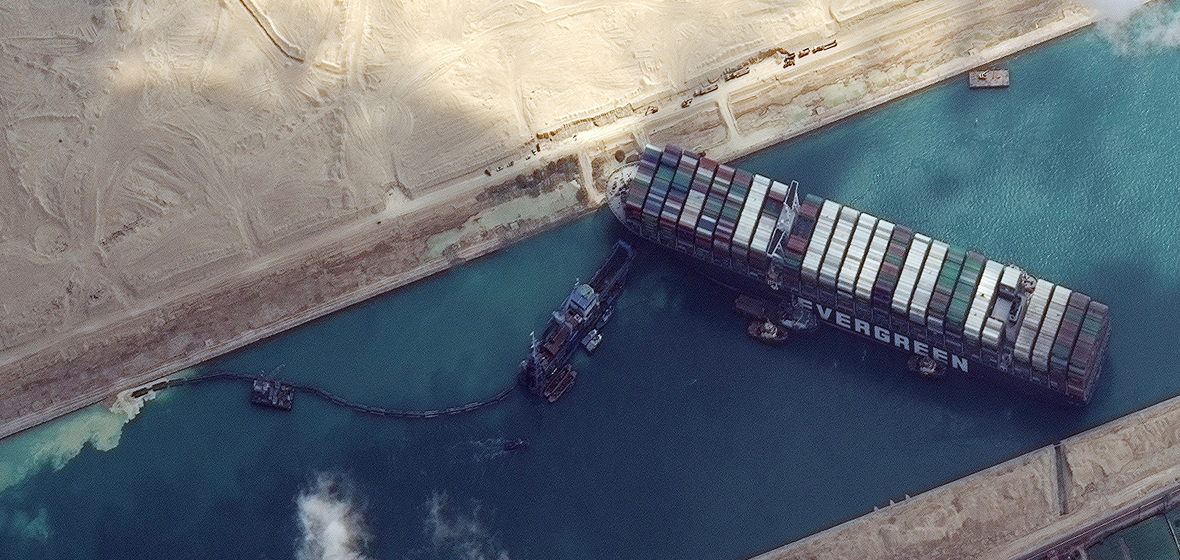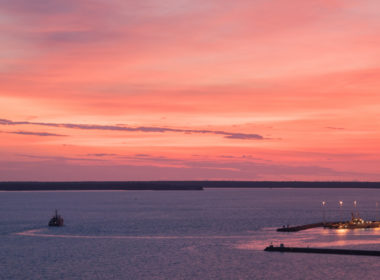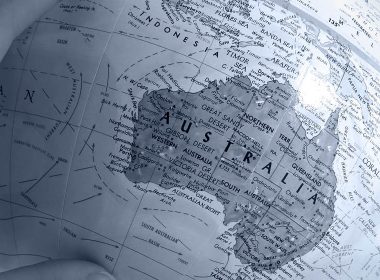Snapshot
- On 23 March 2021, the container ship Ever Given ran aground in the Suez Canal, Egypt while en route to Rotterdam in the Netherlands, sparking shipping and supply chain chaos, months of international headlines and countless office memes.
- The ship was eventually dislodged (thanks to a considerable coordinated effort), but the complex legal fallout has really only just begun.
- This article introduces readers to some of the surprising jurisdictional, maritime and insurance law disputes that lie ahead.
On 23 March 2021, the container ship Ever Given ran aground in the Suez Canal, Egypt while en route to Rotterdam in the Netherlands, setting in motion a maritime, commercial and legal debacle that is set to have international consequences for years to come.
Background
The vessel, some 400m in length and weighing 200,000 tonnes, was carrying around 18,300 containers on board. The Ever Given is owned by a Panamanian subsidiary of Shoei Kisen Kaisha of Japan and operated by Taiwanese transport company, Evergreen Marine.
The blockage caused the transit of ships through the Canal from the Mediterranean Sea in the north, and the Red Sea in the south, to back up, delaying the passage of more than 400 ships. As a result, some of the major container lines began to divert ships round the Cape of Good Hope and warned that supply chain disruption could take months to unravel.
Specialist rescue teams and salvage operators, Smit Salvage, took six days to free the Ever Given. Since it was finally dislodged on March 29, 2021 it remains in a mid-way point in the Canal known as the Great Bitter Lakes. With only modest damage to the vessel, inspections and patching were undertaken there. Vessel surveys were completed by the American Bureau of Shipping on 4 April 2021 and a certificate of fitness was issued to allow the vessel to move from the Great Bitter Lake to Port Said in order to undergo re-inspection before completing her voyage to Rotterdam.
However, the interests of various stakeholders, such as the Suez Canal Authority (‘SCA‘), vessel and cargo owners, salvors and other users of the Canal, has given rise to a complex matrix of legal issues. Despite negotiations with stakeholders, the vessel was arrested by the SCA on 13 April 2021 and the vessel currently remains under arrest in the Great Bitter Lake within Egyptian jurisdiction.
The role and interests of the Suez Canal Authority
The Suez Canal is an area of compulsory pilotage, meaning that a local master mariner authorised to act as a marine pilot takes over the control of the vessel throughout the passage (Suez Canal Authority – SCA Rules of Navigation Section II Article 11 A). There were two marine pilots on board at the time of the incident. It was first thought that the cause of the grounding was due to unpredictably high gusts of wind, but the SCA has told reporters it may not be the only reason for grounding and investigations are continuing in relation to the cause of the incident. Vessel log books, the voyage’s data recorder, crew statements and contemporaneous on board communications will form vital evidence in the investigation and subsequent legal actions.




